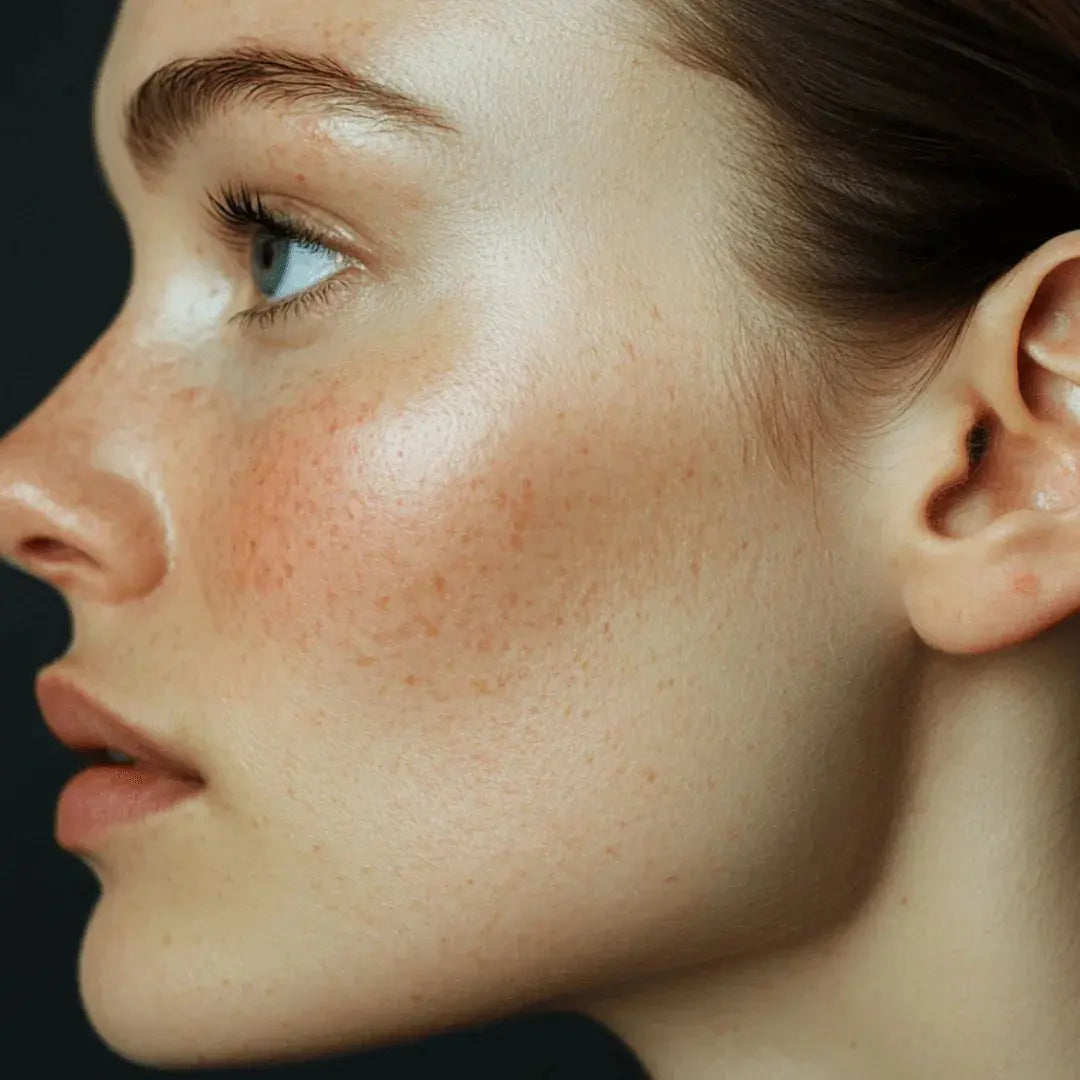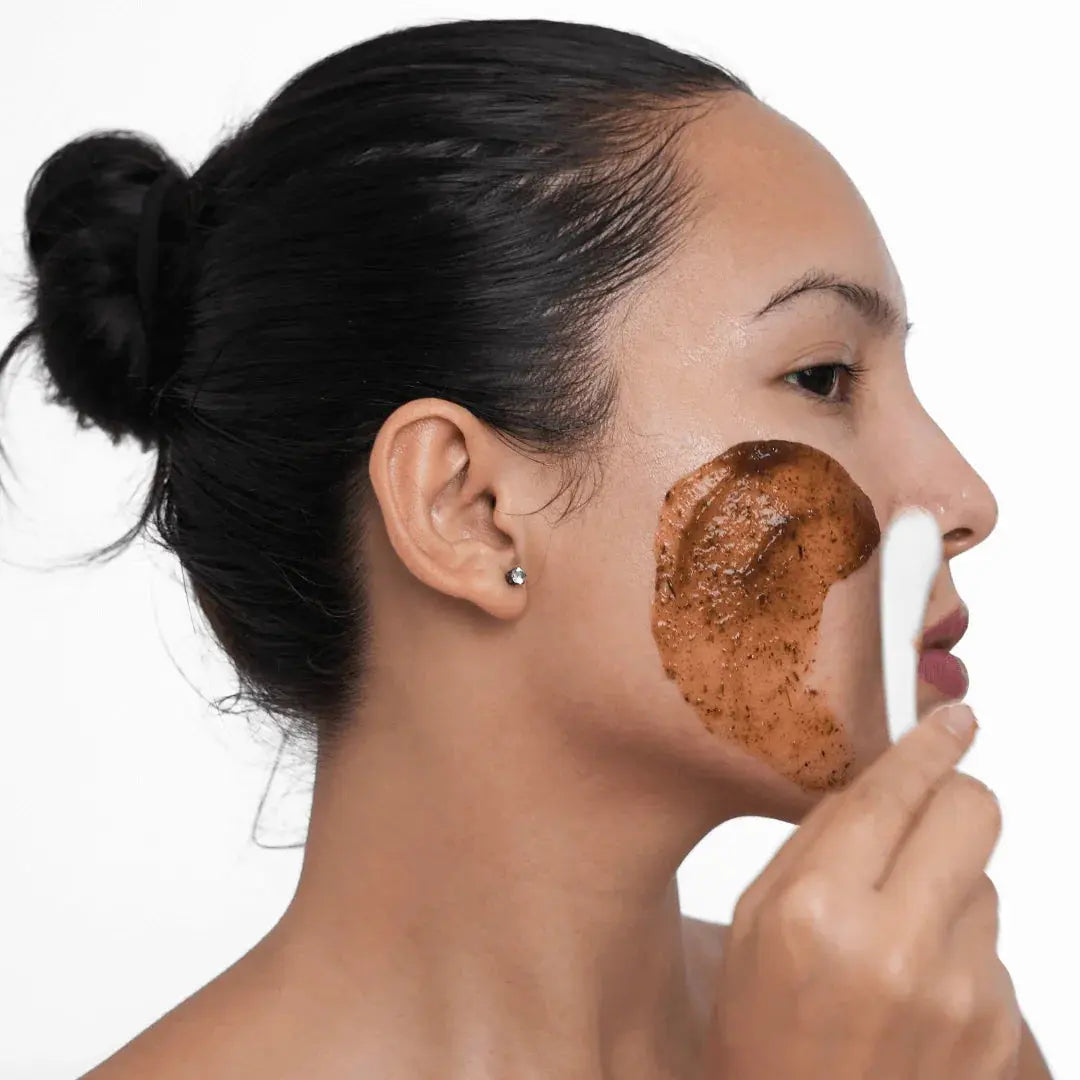Sun exposure is one of the leading causes of skin damage and premature aging. Spending time in the sun feels good and is necessary for vitamin D production, but too much exposure can have serious consequences. By understanding the dangers of sun exposure and the importance of using sunscreen, you can protect your skin and preserve its health and appearance.
The Dangers of Sun Exposure
Skin Cancer: Skin cancer is one of the fastest-growing forms of cancer in Sweden. Prolonged exposure to UV rays increases the risk of skin cancer, including melanoma, which can be deadly if not detected early. Both UVA and UVB rays can damage the DNA in skin cells, leading to mutations and cancer. UV radiation has been classified by the WHO's research body for cancer with the highest risk category, Category 1, "carcinogenic for humans." Alarmingly, 9 out of 10 cases of malignant melanoma can be linked to our behavior in the sun. Burning your skin five times while growing up more than doubles your risk of skin cancer in adulthood.
In Sweden, skin cancer is the second most common form of cancer among both men and women, despite the country having fewer hours of sunshine compared to many others. The Nordic countries, together with Australia and New Zealand, have the highest incidence of skin cancer. The risk of skin cancer increases with more time spent in the sun and more instances of sunburn.
Premature Aging: UV radiation accelerates the breakdown of collagen and elastin fibers in the skin, leading to wrinkles, sagging, and age spots. This process, known as photoaging, makes the skin look older than it is.
Sunburn: Sunburn is an immediate reaction to excessive UV exposure, causing redness, pain, and sometimes blisters. Repeated sunburns can significantly increase the risk of skin cancer.
Hyperpigmentation: UV exposure can lead to the development of dark spots and uneven skin tone. Conditions like melasma and sunspots are often exacerbated by sun exposure.
Eye Damage: UV rays can also damage the eyes, leading to conditions such as cataracts, macular degeneration, and photokeratitis (sunburn of the eye).
The Importance of Sunscreen
Sunscreen is a crucial part of any skincare routine. It acts as a protective barrier against the harmful effects of UV radiation. Here’s why sunscreen is important:
Prevents Skin Cancer: Regular use of sunscreen significantly reduces the risk of developing skin cancer by protecting skin cells from UV-induced DNA damage.
Slows Down Aging: By protecting against photoaging, sunscreen helps preserve the skin’s collagen and elastin, reducing the appearance of wrinkles and fine lines.
Prevents Sunburn: Sunscreen absorbs or reflects UV rays, preventing them from penetrating the skin and causing sunburn.
Reduces Hyperpigmentation: Using sunscreen helps prevent dark spots and hyperpigmentation from worsening due to sun exposure.
Protects Year-Round: UV rays can penetrate clouds and windows, making sunscreen important not just in summer but year-round.
Misinformation and the Risks
Unfortunately, there is a lot of misinformation about sunscreen. Influencers spreading fear about sunscreen, tips on making your own sunscreen, or clickbait headlines from major news outlets can be downright harmful to public health. Claims like "the risk of malignant melanoma increases with sun protection" or that "sunscreens interfere with fertility and contain endocrine-disrupting substances" contribute to confusion and fear. In reality, not using sunscreen can lead to serious health risks.
Types of Sunscreen: Physical vs. Chemical
There are two main types of sunscreen: physical (mineral) and chemical. Each type has its benefits and drawbacks.
Physical Sunscreen:
- Ingredients: Contains active mineral ingredients like zinc oxide and titanium dioxide.
- How It Works: Sits on the skin’s surface and reflects UV rays away.
-
Advantages:
- Immediate Protection: Provides protection as soon as it is applied.
- Less Irritating: Less likely to cause skin irritation, making it suitable for sensitive skin.
- Broad Spectrum: Effectively blocks both UVA and UVB rays.
-
Disadvantages:
- Texture: Can be thicker and leave a white cast on the skin.
- Durability: Can easily rub off or be washed away by sweat and water.
Chemical Sunscreen:
- Ingredients: Contains organic (carbon-based) compounds like oxybenzone, avobenzone, octinoxate, and octocrylene.
- How It Works: Absorbs UV rays and converts them into heat, which is then released from the skin.
-
Advantages:
- Cosmetically Appealing: Generally lighter in texture and easier to apply without leaving a white cast.
- Water-Resistant: Often more water-resistant than physical sunscreens.
-
Disadvantages:
- Wait Time: Needs to be applied 20 minutes before sun exposure to be effective.
- Potential Irritation: Can cause irritation or allergic reactions, especially for sensitive skin.
- Environmental Concerns: Some chemical ingredients can harm marine life and coral reefs.
Which is Best?
Choosing between physical and chemical sunscreen depends on your skin type, lifestyle, and personal preferences:
- For Sensitive Skin: Physical sunscreens are often the best choice as they are less likely to cause irritation.
- For Daily Use: Chemical sunscreens might be preferred for their lightweight texture and ease of application.
- For Outdoor Activities: A combination or layering method using both types can provide comprehensive protection, especially if you sweat or swim.
Building Good Sun Habits
- Wear Protective Clothing: Closely woven clothing in dark colors provides the best protection from the sun.
- Seek Shade: Between 11 AM and 3 PM, the sun is at its strongest, so it’s a good idea to stay inside or in the shade.
- Reapply Sunscreen: To maintain the protection stated on the sunscreen, reapply every two hours or after swimming.
Sun exposure carries significant risks, but using sunscreen can protect your skin from these dangers. Whether you choose a physical or chemical sunscreen, the most important thing is to use it regularly and correctly. Apply sunscreen generously, reapply every two hours, and make it a part of your daily skincare routine to keep your skin healthy and youthful. We need the sun to survive, but too much sun can make us sick. It is clear that we need new sun habits to break the trend and protect our health.




